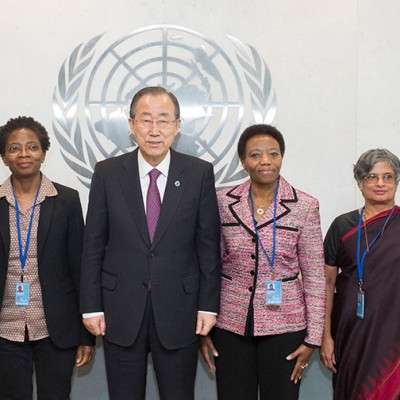Key to the prevention of conflict is the development of skills in methods of conflict management and the provision for dialogue between various stakeholders. The Preventive Action Programme at ACCORD emphasizes the importance of building relationships between stakeholders, at the same time equipping them with skills in managing conflict. The Preventive Action programme worked from three pillars, namely training, dialogue and research.
Preventive action entails developing the capacity of stakeholders to initiate and manage efforts to prevent disputes from developing into violent conflict; prevent existing conflicts from escalating; and where conflicts are resolved, to prevent them from recurring. The Programme focuses on building the capacity of civil society, in particular, to become vehicles for preventive action. The Preventive Action Programme targets the southern Africa region, and initiatives have been undertaken in Zambia, Tanzania, Malawi and Angola. The Programme is funded by the Department for International Development (DFID) and has been in existence since 2000.
The primary objectives of the Programme were:
- To create an understanding and awareness of the role of civil society in democratisation and conflict transformation in post-conflict situations;
- To strengthen the capacity of civil society organisations to engage in effective conflict prevention, management and transformation initiatives in order that they may prevent conflicts from occurring, prevent conflicts from escalating, or prevent resolved conflicts from re-occurring;
- To improve democratic governance through enhancing the capacity and skills of civil society to participate in open debate and decision-making at local, national and regional levels, and
- To encourage and promote dialogue between civil society and other stakeholders, including community representatives, political parties and government officials.
To strengthen civil society in conflict management, the Preventive Action Programme provided training in conflict management with attention on negotiation and mediation as alternative methods to managing conflict. The Programme provided platforms for debate and open discussion between civil society, political parties, community representatives and government departments to encourage dialogue between civil society and other key stakeholders. The Preventive Action Programme built strong partnerships with local civil society organizations. In all the focus countries, partnerships with local organizations were developed to provide for the meaningful exchange of skills, resources and information in the design, development, and implementation of activities.
Range of activities
From 2000-2004, the Preventive Action Programme focused on providing training in conflict prevention and management, creating platforms for dialogue between stakeholders, and conducting research into the theory and practice of preventive action in southern Africa.
Training
The training workshops undertaken in Malawi focused on both civil society and political leaders. Training was conducted for civic leaders and political party leaders involved in local government elections, as well as proactive civil society representatives from across Malawi engaged in human rights, development, education, conflict management and other fields. In Zambia, training was conducted for parliamentarians and potential electoral monitors to equip them with conflict prevention skills for managing conflict during elections. Developing skills in conflict analysis, negotiation and mediation been the focus of the initial activities in Angola, where the emphasis has been on building the capacity of civil society to prevent and manage conflict, and effectively participate in peace building in Angola.
Dialogue
Strengthening relationships between political parties, civic institutions, and parliamentarians, and the private sector has been the focus of activities undertaken in Tanzania, and this also been achieved through combining dialogue and training. In both Zambia and Malawi dialogues on elections and electoral conflict were held. The emphasis was on sharing lessons and best practices in managing electoral conflict, and how these may be applied in individual countries and southern Africa as a whole.
Research
The Programme produced various research papers and publications. These have included following preventive action trends and developments across southern Africa and focused papers on key preventive action issues facing the region and specific countries, which have been presented in ACCORD’s publication, Conflict Trends.

